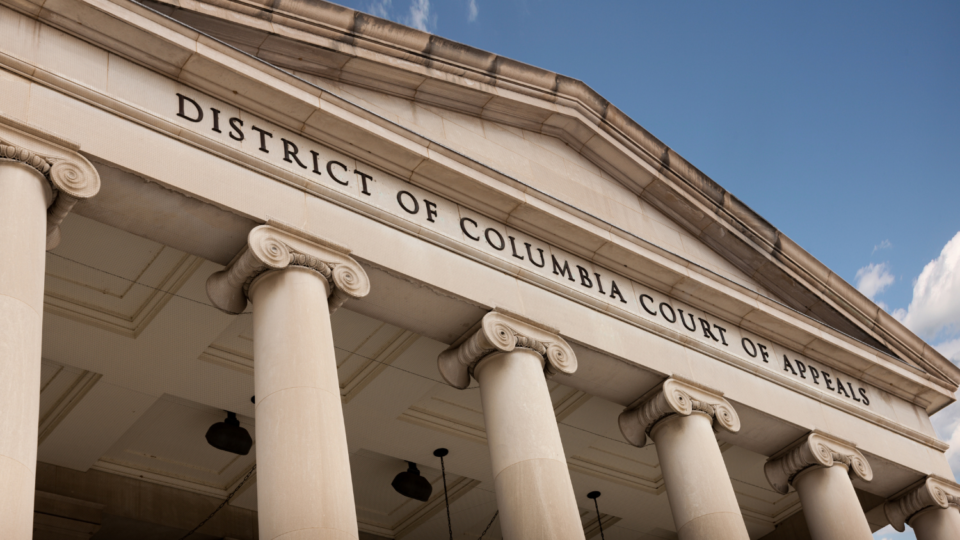The U.S. Court of Appeals for the D.C. Circuit recently heard argument on a challenge to law enforcement’s increasingly common practice of obtaining nondisclosure orders (“NDOs”) that cover an entire investigation rather than an individual piece of legal process. We have long considered these so-called “omnibus” NDOs subject to challenge for the reasons set forth below.
In In re Sealed Case,[1] Appellant X Corp. (“X”) appeals from the D.C. District Court’s denial of X ’s motion to vacate or modify an omnibus NDO directed to the company relating to a grand jury subpoena seeking information about two of its users. The case was initially filed and litigated under seal, but the court has recently released portions of the filings. According to the record, the omnibus NDO was issued approximately one month before the issuance of the subpoena and applied to all legal process (regardless of the target at issue in or the recipient of the legal process) relating to a particular investigation.
X argues (and we agree) that an omnibus NDO violates the plain language of the Stored Communications Act, specifically 18 U.S.C. § 2705(b), which requires an individualized assessment – as to each particular piece of legal process – of the dangers that could result from disclosure of the legal process. Specifically, in our view (which differs slightly in presentation and emphasis from that made by X), omnibus NDOs fail:
The “will result” standard of 18 U.S.C § 2705(b)
- A nondisclosure order can issue under 18 U.S.C. § 2705(b) only where there is “reason to believe” that disclosure of the subpoena’s existence “will result” in various adverse occurrences – not when such an occurrence is a mere possibility. This interpretation is given further force by Section 2705(a)(1)(A)’s use of a “may have an adverse result” standard (the section that allows law enforcement to seek delay of its obligation, under certain circumstances, to provide notice to a user) while the provision at issue here uses a “will result” in standard. A court cannot determine that there is reason to believe such adverse occurrences “will result” from the disclosure of legal process without knowing the facts and circumstances relating to the particular process at issue.
18 USC § 2705(b)’s use of singular verbiage in describing the legal process
- The language of 2705(b) indicates that NDOs must apply to specific, concrete legal process that exists at the time of the order. Section 2705(b) allows certain government entities to “apply to a court for an order commanding a provider . . . to whom a warrant, subpoena, or court order is directed” not to disclose “the existence of the warrant, subpoena, or court order.” (emphases added). According to the plain text of the statute, the government may obtain an NDO for legal process issued previously or at the time the order issues – not to prospective process that has yet to be issued.
In addition to the statutory violation, X and we argue that omnibus NDOs are violative of First Amendment rights. Under the First Amendment, an NDO is a content-based, prior restraint on speech that must satisfy strict scrutiny – meaning that the order must serve a compelling government interest and be narrowly tailored to, and the least restrictive means of fulfilling, that interest. To be narrowly tailored, the order must take into account the facts and circumstances as they exist at the time of the issuance of the NDO. A prospective order is not the least restrictive means of achieving the government’s interest when a less restrictive means exists – seeking NDOs for specific legal process.
In this case, X bolstered its First Amendment arguments by noting the unfairness (amounting to a due process violation) of having to litigate the case without access to the ex parte materials that the government purported supported the need for nondisclosure. Indeed, X noted that what it did know about the matter (all of which is still redacted and under seal) does not support a need for secrecy. The parties delivered oral arguments in In re Sealed Case earlier this week. We will be keeping a close eye on the case as it unfolds.
[1] The case was filed on April 17, 2024 and is publicly referred to as In re: Sealed Case No. 24-5089.


